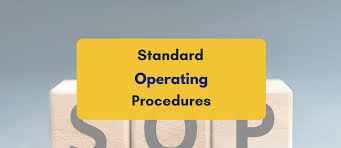
IN our evolving business environment, organisations are under immense pressure to innovate, grow sustainably and transform lives, internally and externally.
Many leaders struggle with the false dichotomy of transactional tools versus transformational leadership. Transactional tools are the foundation that supports transformational outcomes.
Transactional tools are systems, metrics, Standard Operating Procedures (SOPs) and performance incentives. These are systems and methods that are used to manage, process and analyse transactions in various setups, including businesses.
This system includes quantifiable measures that are used to track and assess the performance of various business functions to aid businesses in making informed decisions and achieving their goals. This approach encompasses SOPs, which are essential documents that provide a clear and consistent method for carrying out various activities in a business.
SOPs ensure that tasks are performed efficiently and consistently.
One of the major types of transactional tools is the Transactional Processing System, which captures, processes, and stores transactional data.
Transactional Processing System enables businesses to gather information in real-time, enabling corrective measures or engagement to be taken urgently.
Moreover, this system enables companies to process transactions in batches, enabling data to be processed efficiently.
Transactional data is one of the widely used transactional tools. It is simply defined as information captured during transactions. This system aids businesses in making informed decisions, thereby improving customer relations.
Organisations rely on transactional data for decision-making. This approach aids management in analysing trends and patterns. For example, a retail shop owner could analyse sales for a particular month and notice specific months’ record high sales at specific segments. This system empowers the decision-makers to make strategic decisions based on reliable data.
Transformational goals involve culture change, empowerment and vision alignment. Transformational goals are a set of changes needed to apply to transition from a current position to a planned state. Everyone in the organisation must be on the same page and aligned with the vision, systems and purpose of the organisation. Leadership has to play a crucial role in supporting this initiative for it to see the light of day.
Transformational leadership is about inspiring and motivating teams to achieve beyond expectations, fostering innovation and driving meaningful change.
Management influences team members and creates a compelling vision for the organisation. For companies to be innovative, they must employ experts who are eager to learn and come up with new methods of doing business that will give the organisation a competitive advantage.
Too often, businesses on their transformational journey tend to abandon structure. The only way to maintain the structure is by leveraging transactional tools to enable transformational impact.
Create schedules that protect innovation time
As a visionary thinker, protect your calendar of events for you to have white space for focused thinking, as innovation requires consistency and intentionality. By encouraging innovative thinking, businesses can stay ahead and adapt to changes in market conditions.
Implement policies that promote empowerment
Organisations must have policies in place to encourage employees to reskill and develop employees for promotion and to effectively carry out delegated tasks.
Build scorecards that reinforce vision
Having drawn information on the scoreboard compels management and team members to focus on set goals and dedicate themselves to achieving them. This approach makes it easy to re-evaluate and align. Progress towards attaining goals can be tracked, and a new strategy could be adopted to move towards achieving set goals.
Deliver dashboards that tell stories, not just stats
Transformational leadership doesn’t mean abandoning tools; it means redeeming them. When implemented correctly, transactional tools with the business measure what really matters, anchor on their vision, and scale with purpose.
- Innocent Hadebe, with 25 years of experience and credentials as a John Maxwell certified business coach, serves as a trusted executive advisor through Innocent Leadership Group (ILG), empowering global leaders to think boldly, lead transformational change and turn operational complexity into measurable success










